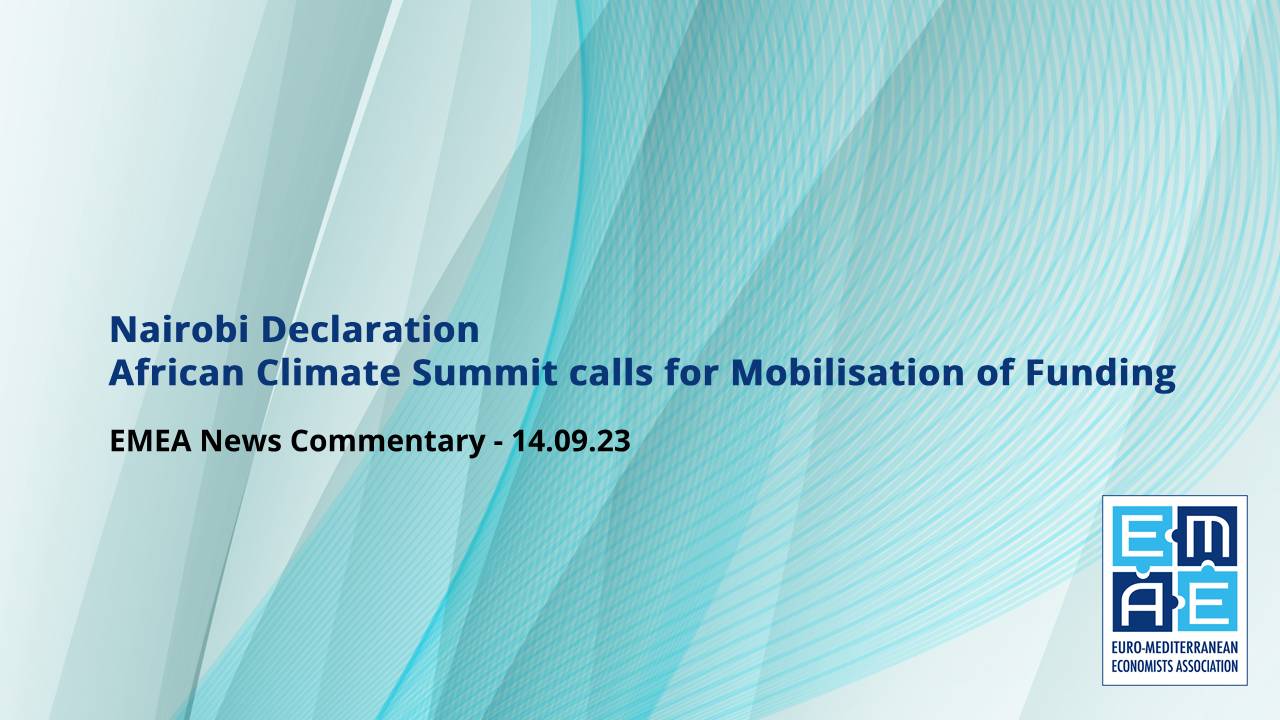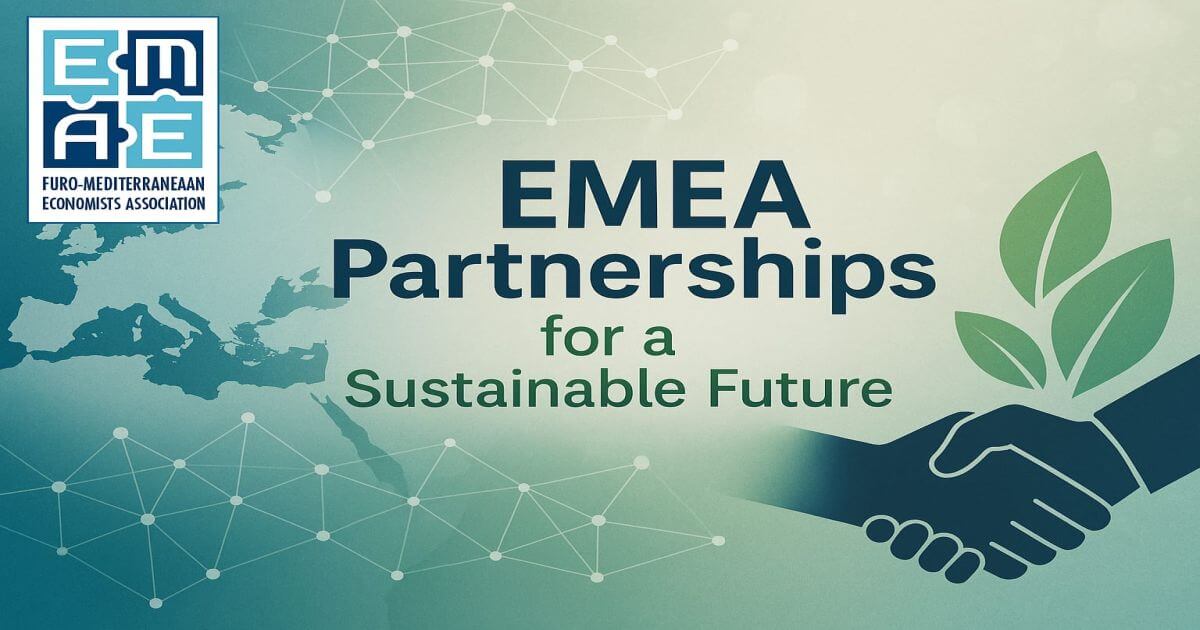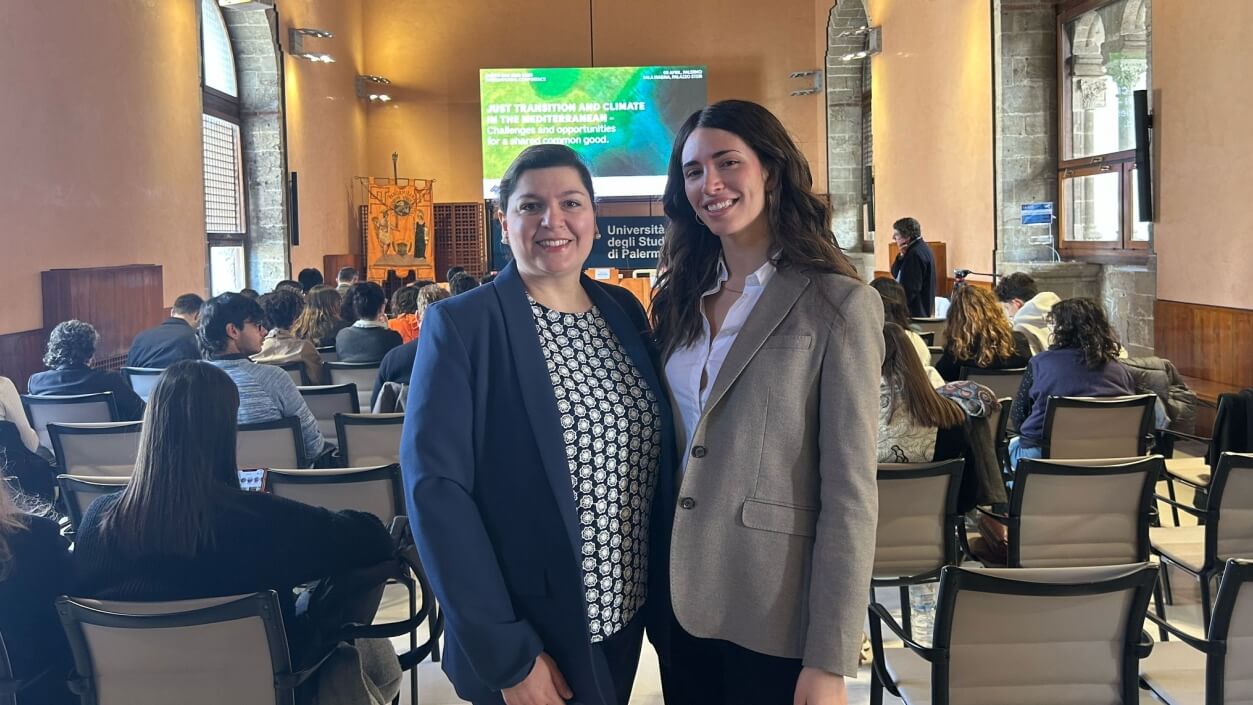African leaders have proposed a global carbon tax regime to fight climate change as part of a multi-faceted call to action, following the three-day Africa Climate Summit (ACS) in Kenya.
In what’s become known as The Nairobi Declaration, the continent’s Heads of State urged major polluters to commit to providing greater resources to help poorer nations. And they’ve said that this standpoint will form the basis of their negotiating position at November’s COP28 in Dubai.
Need for concessional finance
The event was dominated by discussions on how to mobilise financing, to counter increasingly extreme weather, as well as to conserve natural resources and develop renewable energy.
Many attendees called for “concessional” finance — that’s loans at below-market interest rates, with more lenient repayment timelines. It’s being reported that this may well be forthcoming soon, should the World Bank and International Monetary Fund (IMF) follow through on promised reforms.
According to the New York Times “the tension underlying the summit was clear in speech after speech, in which African leaders lamented the lack of urgency in fulfilling financing pledges.”
The Declaration repeatedly stressed that Africa was not a helpless victim, but instead, stood on the cusp of playing a leading role in clean energy and environmental stewardship. For that to happen, however, the statement said the world’s industrialised countries must first unlock access to their wealth through investments – rather than relegating their contributions to aid after disasters had struck.
As reported by the BBC, the Nairobi Declaration urged world leaders “to rally behind the proposal for a global carbon taxation regime, including a carbon tax on fossil fuel trade, maritime transport and aviation, that may also be augmented by a global financial transaction tax”.
According to the IMF, around two dozen countries currently impose taxes on carbon. The notion of a global carbon tax regime, however, has so far failed to gain much traction.
Key Summit Pledges
Kenya’s President William Ruto, who hosted the Summit, said that over the three-day event, international governments, development banks, private investors and philanthropists had committed a combined $23bn (£18bn) to green projects. According to Reuters, an initiative to boost Africa’s carbon credit production 19-fold by 2030, had drawn hundreds of millions of dollars in pledges.
Amongst initiatives announced were:
- The United Arab Emirates committed “a non-binding letter of intent” to buying $450 million of carbon credits from the Africa Carbon Markets Initiative (ACMI). This was in addition to a $4.5 billion commitment towards clean energy.
- Climate Asset Management – a joint venture of HSBC Asset Management and Pollination – announced a $200 million investment in projects that will produce ACMI credits.
- Britain said UK-backed projects worth $62 million would be announced over the course of the summit.
- Germany announced a $65 million debt swap for Kenya to free up funds for green projects.
Scratching the surface
Despite the pledges made, many African leaders felt these investments would only scratch the surface of the continent’s financial needs and said more systemic changes were required.
Indeed, some analysts said the summit had not focused enough on how to help Africans adapt to extreme weather. Some activists say the credits are merely a pretext for big polluters to keep emitting carbon dioxide.
According to Reuters, African governments saw carbon credits and other market-based financing instruments as being key to mobilising funding which, to date, had been “slow to arrive from rich-world donors.”
Joab Bwire Okanda, a senior advisor at the Christian Aid charity, said the call for a global carbon tax was welcome but that “to make polluters really pay, false solutions like carbon credits that allow polluters a free ride without taking meaningful action need to be consigned to the dustbin”.
Several speakers at the summit said they had seen little progress towards accelerating climate financing because investors still saw the continent as too risky.
But Kevin Kariuki, a vice president at the African Development Bank, told Reuters that the carbon credit and debt swap deals, announced at the Summit, were “very welcome” but not enough.
He said that at COP28 in November, African states would push for expansion of special drawing rights at the IMF. This could potentially unlock $500 billion worth of climate finance, which could be leveraged up to five times.
Post Summit Call to Action
In their Call to Action, African leaders stressed the importance of decarbonising the global economy for equality and shared prosperity. They called for investment to promote the sustainable use of Africa’s natural assets, which would enable the continent’s transition to low carbon development.
“We call for a comprehensive and systemic response to the incipient debt crisis outside default frameworks to create the fiscal space that all developing countries need to finance development and climate action,” African leaders said in the Declaration.
The leaders expressed concern that many African nations were disproportionately burdened by unpredictable weather events and patterns that were climate change related.
“We note that multilateral finance reform is necessary but not sufficient to provide the scale of climate financing the world needs to achieve 45 per cent emission reduction required to meet the Paris 2030 agreements,” the Declaration said, noting that, “the scale of financing required to unlock Africa’s climate positive growth is beyond the borrowing capacity of national balance sheets.”
The Call to Action also urged the speeding up of on-going initiatives to reform the multilateral financial system and global financial architecture.
A new financing architecture was proposed that would be responsive to Africa’s needs, including debt restructuring and relief, along with the development by 2025 of a United Nations General Assembly-backed new Global Climate Finance Charter.
“We call for collective global action to mobilise the necessary capital for both development and climate action, echoing the statement of the Paris Summit for a New Global Financing Pact that no country should ever have to choose between development aspirations and climate action,” they said.
Leaders also emphasised the need for concrete action to reform the multilateral financial system, specifically to build resilience to climate shocks and better deployment of the Special Drawing Rights liquidity mechanism.
The summit’s message of unity was diluted somewhat because key leaders from some of Africa’s largest economies, including Nigeria, South Africa, Ethiopia and Egypt, didn’t attend.
Meanwhile the Vulnerable Twenty (V20) Group of Finance Ministers has welcomed the commitments coming out of the ACS. Ken Ofori-Atta, the Finance Minister of Ghana and Chair of the V20 Group said: “We have been encouraged by the call by African leaders for accelerated reforms of the global financial architecture that is fair, inclusive and responsive to the climate financing needs of climate vulnerable countries.”
THE AFRICAN LEADERS NAIROBI DECLARATION ON CLIMATE CHANGE AND CALL TO ACTION
Africa proposes global carbon taxes to fight climate change – BBC News
Hundreds of millions of dollars pledged for African carbon credits at climate summit | Reuters
OFFICIAL V20 REACTION TO THE AFRICA CLIMATE SUMMIT – V20: The Vulnerable Twenty Group (v-20.org)





